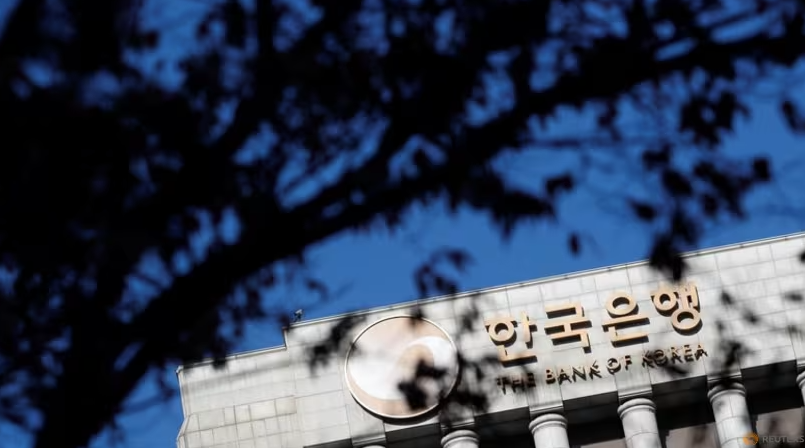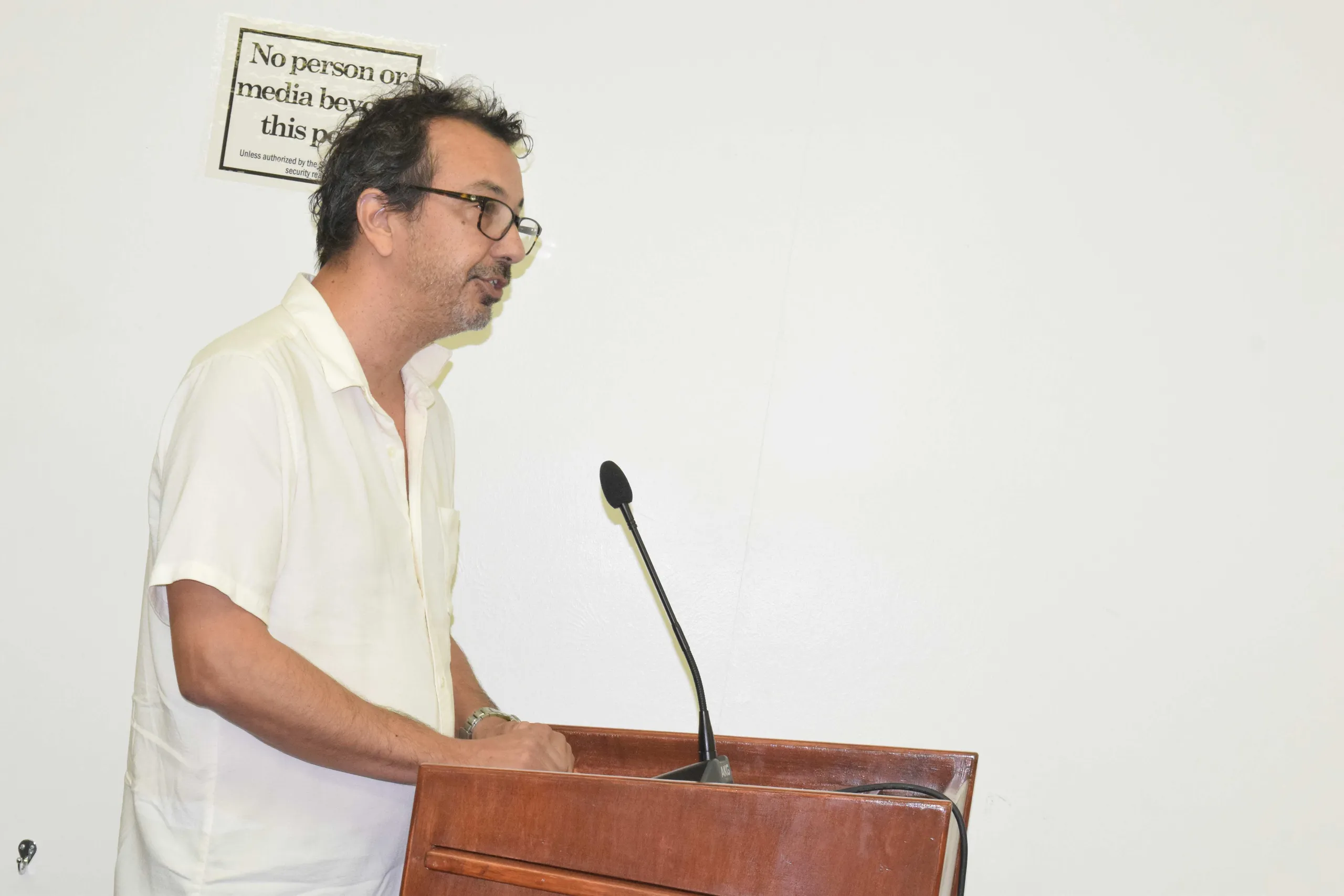
The logo of the Bank of Korea in Seoul, South Korea, Nov. 30, 2017.
SEOUL (Reuters) — The Bank of Korea lowered interest rates by a quarter of a percentage point on Tuesday, steering Asia’s fourth-largest economy away from restrictive monetary policy towards a neutral stance amid mounting growth concerns.
The Bank of Korea or BOK cut its benchmark interest rate to 2.75% at its monetary policy review, an outcome expected by 35 out of 36 economists polled by Reuters.
The reduction marks the third since the BOK began trimming borrowing costs from a 15-year high in October, leaving Korean rates around 150 basis points beneath the U.S. Federal Reserve’s target range of 4.25-4.50%.
The central bank also revised down its growth forecasts for this year to 1.5% from 1.9%, while keeping inflation forecast at 1.9% for both this year and next.
South Korea is grappling with the economic impact of U.S. President Donald Trump’s ongoing tariff war, which is expected to undermine corporate profits. Domestic political unrest also continues to dampen consumer sentiment following impeached President Yoon Suk Yeol’s brief declaration of martial law in December.
BOK Governor Rhee Chang-yong had previously suggested a supplementary fiscal budget of 15 trillion won ($10.51 billion) to 20 trillion won to bolster growth, but these discussions have stalled in parliament.
Market reaction to the rate cut was muted.
The BOK faces a complex communication challenge, as the market path for interest rates fluctuates amid uncertainty surrounding U.S. policy, its impact on the Korean economy and the country’s domestic political crisis.
Most analysts surveyed anticipate two more rate cuts to 2.25% by the end of the year, despite the consensus that the U.S. Federal Reserve will likely implement fewer or no cuts in the coming months.
Markets will now shift their attention to Governor Rhee’s press conference at 0210 GMT, where any dissenters to the policy decision could be revealed. Dissenting votes often precede policy changes in subsequent months.











